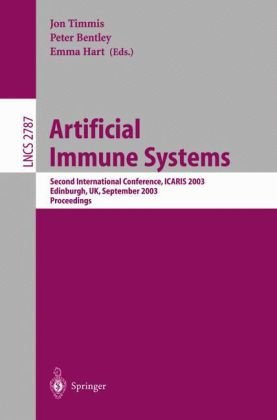

Most ebook files are in PDF format, so you can easily read them using various software such as Foxit Reader or directly on the Google Chrome browser.
Some ebook files are released by publishers in other formats such as .awz, .mobi, .epub, .fb2, etc. You may need to install specific software to read these formats on mobile/PC, such as Calibre.
Please read the tutorial at this link: https://ebookbell.com/faq
We offer FREE conversion to the popular formats you request; however, this may take some time. Therefore, right after payment, please email us, and we will try to provide the service as quickly as possible.
For some exceptional file formats or broken links (if any), please refrain from opening any disputes. Instead, email us first, and we will try to assist within a maximum of 6 hours.
EbookBell Team

0.0
0 reviewsIn many ways, our immune systems are as complex as our brains. They learn, predict, remember and adapt, protecting us from the maelstrom of pathogens that infect us daily. Computer Science frequently takes inspiration from the seemingly endless capabilities of natural systems. It should therefore be no s- prise that, like the ?eld of Arti?cial Neural Networks inspired from brains, we now have a vigorous ?eld of research known as Arti?cial Immune Systems (AIS), inspired by our own immune systems. Although still relatively new, the previous 10 years has seen the paradigm of AIS rapidly establish itself as an important biological metaphor. Researchers all over the world fruitfully exploit “immunological ideas” in many di?erent ways to provide mechanisms for tackling a wide variety of applications. In this volume we present the proceedings of ICARIS 2003, the 2nd Int- national Conference on Arti?cial Immune Systems. This was the second int- national conference entirely dedicated to the ?eld, and followed the extremely successful ?rst conference held in Canterbury, UK in 2002. The number and - versityofpapersinthisyear’sconferenceisatributetotheever-growingnumber ofresearchersinthearea,andrepresentativeofthesolidfoundationofworkthat now exists in this area. The range of topics considered is wide. For example, at one end of the spectrum we see a selection of papers providing a necessary t- oretical grounding for the ?eld. At the other end, we have an exciting range of applications to real-world problems, covering, for example, job-shop scheduling and fault detection in refrigeration systems.